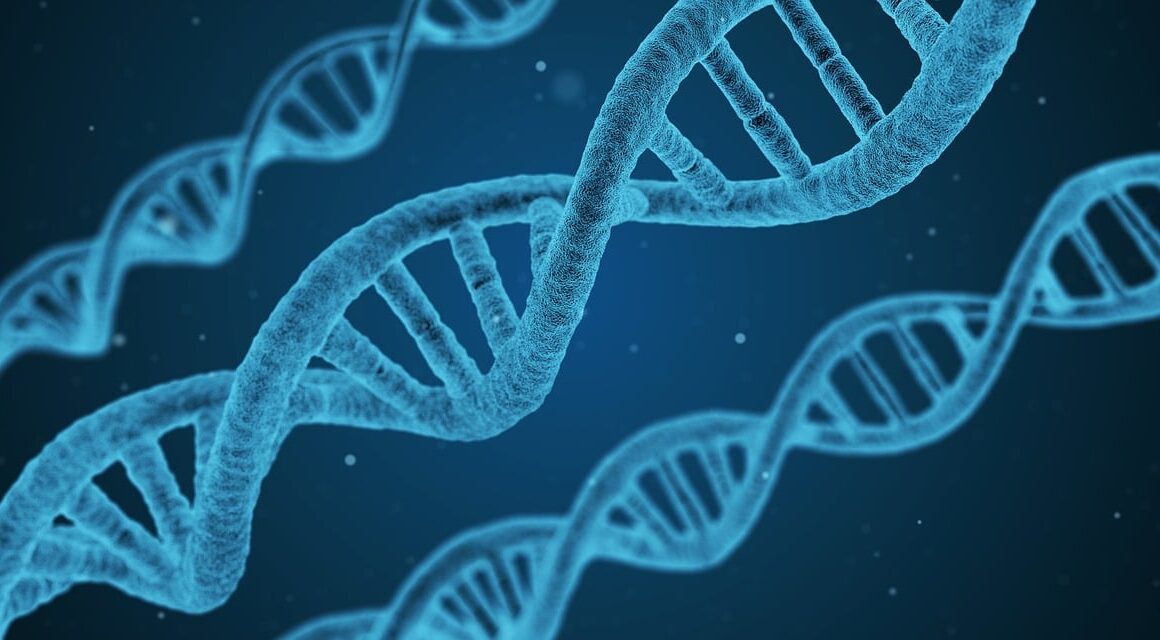The Impact of Team Chemistry on E-Sports Victories
Team chemistry is crucial in the world of E-sports, just as it is in traditional sports. Effectively communicating and collaborating among teammates can determine success or failure in competitive gaming environments. Positive team chemistry fosters trust and enhances individual player performance. Players who understand each other’s strengths and weaknesses can strategize better. This synergy often leads to more synchronized gameplay. E-sports teams that build strong inter-member relationships report better cohesion. Trust within a team translates to resilience during high-pressure situations. When players feel comfortable communicating openly, it improves decision-making processes. Healthy conflict resolution among team members can also enhance relationships and elevate overall performance. Emotional intelligence plays a vital role in maintaining solid team atmospheres. Leaders within teams must encourage supportive communication to cultivate this environment. It’s important that team compositions are complementary, maximizing potential strengths while minimizing weaknesses. Teams must regularly engage in feedback sessions for continuous improvement, fostering a culture of shared growth and trust. These factors showcase the need for genuine connections, emphasizing that emotional links in E-sports go beyond mere gameplay. They transform teams, evolving them into formidable competitors capable of achieving greatness.
The Role of Communication
Effective communication is the bedrock of successful E-sports teams. Type and frequency of communication, whether through voice chat or in-game signals, can directly influence match outcomes. Teams benefit from establishing open lines of communication to share strategies and witness seamless teamwork. When players relay real-time information, they can adapt tactics to changing circumstances. This responsiveness enhances combat efficiency during matches, as teams can swiftly tackle challenges together. Moreover, communication methods extend beyond matches; regular practice sessions should also feature discussions about strategies and performance. The bond formed through constant dialogue amplifies team cohesion, ensuring that everyone feels valued. Additionally, ensuring that every member understands their role builds confidence while minimizing misunderstandings in play. Having a clear understanding fosters synchronization on the battlefield, directly affecting victory chances. Furthermore, non-verbal cues also hold significance, helping to enhance gameplay without disrupting dialogue. Players soon develop an intuitive understanding of each other’s behaviors. This fluidity contributes to preemptive decisions that outsmart opponents. Ultimately, effective communication comprises not just sharing information but also nurturing interpersonal relationships, which significantly impact collaborative success in the highly competitive E-sports landscape.
Another important aspect of team chemistry in E-sports is the team’s environment. A positive atmosphere can drastically improve the morale and motivation of players. When individuals enjoy being part of a team, they are likelier to push beyond their limits during critical matches. Celebrating even the smallest victories can significantly uplift team spirit. Regular social interactions among team members, such as shared meals or casual gaming sessions, can solidify relationships outside the competitive setting. When gamers form friendships, there builds a level of understanding that transcends gameplay, leading to better coordination. On the contrary, a toxic environment can lead to burnout and poor performance. Teams experiencing conflicts may find their synergy disrupted, reducing overall effectiveness. Hence, fostering a supportive and inviting team culture is essential for sustained success. Players should feel comfortable expressing their thoughts and feelings among teammates. Transparent communication about challenges can lead to collective problem-solving and resilience. Strong affiliations often increase collective motivation to strive for shared goals. Thus, focusing on building a healthy team environment creates a foundation for success. It reinforces the idea that winning requires more than just skill—it demands a supportive and united team ethos.
Importance of Trust and Relationships
Trust is a fundamental element that binds E-sports teams together. High levels of trust allow players to relax, focusing solely on their roles without second-guessing their teammates. This is particularly critical during intense gameplay moments, where split-second decisions can dictate outcomes. When players know they can rely on one another, they perform not just as individuals but as a unified force. Relationships built on trust facilitate open dialogue, which contributes to improved strategies during matches. Strong connections also foster a greater sense of accountability, motivating players to put in their best efforts. For competitive success, players need to form mutual respect that would minimize friction and misunderstandings. Such dynamics create an emotional investment in the team’s performance. Moreover, trust extends to accepting criticism constructively, allowing room for growth without damaging rapport. Players become more receptive to feedback, cultivating personal and team development. Engaging in team-building exercises can strengthen this trust and cultivate a strong bond. Trust ultimately transforms a group of individuals into a cohesive unit capable of facing the fiercest of competitors. Thus, nurturing relationships and building trust becomes vital for any E-sports team aiming for sustainable victories.
Moreover, complementary skill sets among team members enhance chemistry and performance. Each player has unique strengths that contribute toward achieving team goals. Awareness of each teammate’s skills can inform strategic gameplay decisions. A mixture of specialists and generalists fosters flexibility while creating tactical advantages. For instance, having dedicated snipers alongside effective support players rounds out a well-balanced team composition. Diversity in skill sets allows teams to adapt to different playstyles, increasing unpredictability against opponents. To maintain competitive edge, E-sports teams should analyze their strengths and weaknesses regularly. This self-awareness enables players to focus on mutual improvement, sharpening their collaborative strategies. Furthermore, holding team meetings to evaluate in-game performances can lead to more successful approaches in future matches. Identifying individual contributions offers insight into overall functioning and team dynamics. It’s essential to align goals so that every teammate recognizes their part in that journey. Additionally, fostering an environment that encourages vulnerability can lead to extra growth opportunities. Players must feel safe enough to experiment and take risks. When team members push the boundaries, collective potential significantly expands. Accordingly, collaboration flourishes as teammates explore new tactics, keeping the gameplay dynamic and effective.
Conclusion: Embracing Team Chemistry for Success
The impact of team chemistry on E-sports victories is unmistakable. Winning is seldom attributed solely to individual talent; rather, collective synergy often determines the outcome. Harnessing strong interpersonal connections can lead to improved communication, trust, and overall performance. Teams must acknowledge the significance of building genuine relationships among members and fostering an environment where open dialogue is encouraged. Regular check-ins allow players to showcase vulnerabilities, enabling growth and adaptation. Furthermore, unleashing individual skills through supportive teamwork facilitates seamless collaborations during intense competition. Teams built on chemistry capitalize on this advantage, enhancing their spirit and commitment to shared goals. Coaches and managers play a vital role in nurturing this chemistry, ensuring that practical strategies are aligned with emotional well-being. Instilling a culture of respect and encouragement allows for a happier atmosphere. Consequently, players are more motivated to give their all. Ultimately, understanding and implementing the significance of team chemistry can revolutionize the scope of achievements in E-sports. Success comes not just from individual play, but from a united effort working towards common aspirations. This transformation fosters an E-sports culture that celebrates collective victories while maintaining personal growth for all involved.
The interactions discussed here confirm that E-sports is more than technical prowess; it’s about building effective teams. Analyzing relationships, communication, and structured environments unveils how these elements intertwine. E-sports will continue to grow, with emerging teams acknowledging the importance of connection and collaboration. Investing in these relational dynamics creates a vibrant team spirit, paving the way for success. When players embrace teamwork alongside fostering chemistry, they unlock limitless possibilities and cultivate potential in achieving their aims. Observing how teams leverage these aspects can help budding organizations refine their strategies for long-term success. Future E-sports developments will likely highlight the advantage of chemistry-driven engagements. This evolution will further ensure that players not only compete vigorously but enjoy the camaraderie of their teammates. Thus, understanding team chemistry impacts all facets of E-sports, inspiring a generation of gamers willing to invest in one another. Building connections strengthens competition at every level, from amateur leagues to prominent tournaments. Ultimately, embracing team chemistry may just be the ultimate game-changer in achieving victory in the competitive E-sports arena.
Significances of Mental Health
Another important aspect of team chemistry lies within mental wellness. Maintaining mental health helps sustain performance in high-stakes matches. E-sports athletes experience stress, leadership, and pressure that can impact performance if not managed properly. Acknowledging mental health needs leads to healthier relationships within teams and helps mitigate issues that could disrupt chemistry. Team members should create a supporting network that encourages discussions about mental well-being. Integrating mindfulness and coping strategies into practice sessions can cultivate resilience. Additionally, organizing breaks and relaxation activities promotes overall mental well-being. This is essential for enhancing focus and maintaining stamina during competitions. When players prioritize mental health, they are better equipped to handle setbacks without fracturing team dynamics. Furthermore, understanding this allows players to develop empathy towards their teammates, enhancing emotional intelligence. A mentally sound team not only performs better individually but also exhibits enhanced collective synergy. Additionally, a focus on mental health initiatives helps in developing a sustainable approach toward long-term gaming. These practices can serve to fortify player bonds while addressing the competition’s intensity. Recognizing mental health’s critical role brings forth transformative possibilities that can elevate team chemistry and lead to successes previously considered unattainable.


